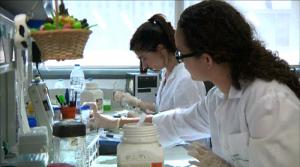- COMPETCompetitiveness (COMPET)
Annual Growth Survey 2014, European Research Area and Space Policy, the focus of COMPET Council
Today Friday, 21 February 2014, the first Competitiveness Council/Research and Space part, during the Greek Presidency of the European Council, was held here in Brussels. The Council was chaired by the Secretary General for Research and Technology of the Ministry of Education and Religious Affairs Dr Christos Vasilakos.
The main Agenda items, discussed today, were the Annual Growth Survey 2014, the European Research Area (ERA) progress report, and issues related to Space Policy and the frame of cooperation between the European Union and the European Space Agency.
The Annual Growth Survey for 2014 was prepared in the context of the European Semester and published by the Commission in November 2013. It gives a clear picture of the situation and the pace of economic development and reforms in the EU member states so far. In line with the Innovation Union, the European Research Area/ERA and the priorities of the “Horizon 2020” but also in view of the economy’s globalization and the global competitiveness, there is still much to be done by the EU member states. Serious reforms have been implemented in the EU member states’ economy.
Yet, in its effort to cope with the market/economy globalization, respond to urgent and ever emerging societal challenges, the EU member states must accelerate their reform pace through the following steps: Since they still fall short of the 3% target with regard to the Research and Innovation investment on national level, they must continue their effort in increasing it and also produce innovative products “close to the market”. Namely it is the private sector to be encouraged and motivated to invest in Research and Innovation and produce new innovative products, services and processes. Thus, and in the frame of the Lisbon strategy target, Europe will be able to create new permanent jobs and solve (in the long run) the still high rate of unemployment in several member states.
In addition to the above the EU member states should make a serious effort in order to reform their National Research Systems, improve their trans-national cooperation, pursuing differentiated growth friendly fiscal consolidation, restoring the normal lending to the economy and modernizing the public sector.
That was followed by the presentation of the draft conclusions on the report of the European Research Area progress. In the adopted conclusions an Agenda with complementary actions in order for the ERA to be completed is provided. In the adopted conclusions it is provided to develop a detailed roadmap for each of the ERA priorities: The need to create more effective National Research systems, continue to work in order to succeed the gender equality, open access, optimal circulation and transfer of scientific knowledge and an open labour market to researchers.
To this end, the member states are encouraged to identify their national priorities in the frame of their National Research and Innovation programs (action plans) and to continue implementing the ERA priorities.
The Research part of the Council was followed by a working lunch on issues related to the Space sector, in the presence of the Director General of ESA Dr Jean-Jacques Dordain. Mr Dordain addressed the ministers and talked on the progress of the EU-ESA efforts to establish and finalize their cooperation framework.
After lunch the Space part of the Competitiveness Council began with the presentation of the Commission working document on the progress of the EU-ESA cooperation to date, followed by discussion.










